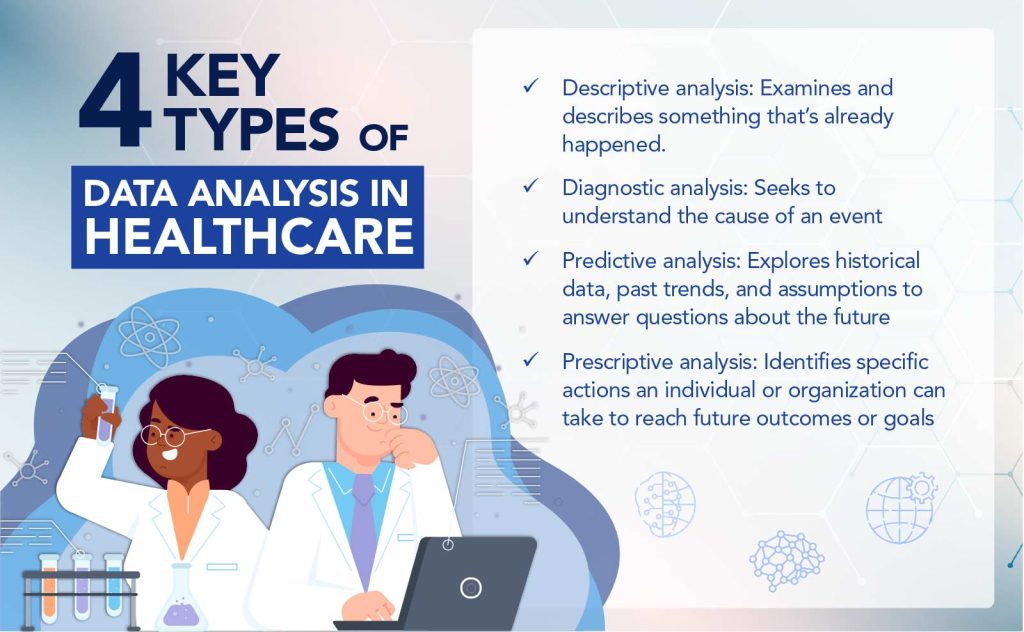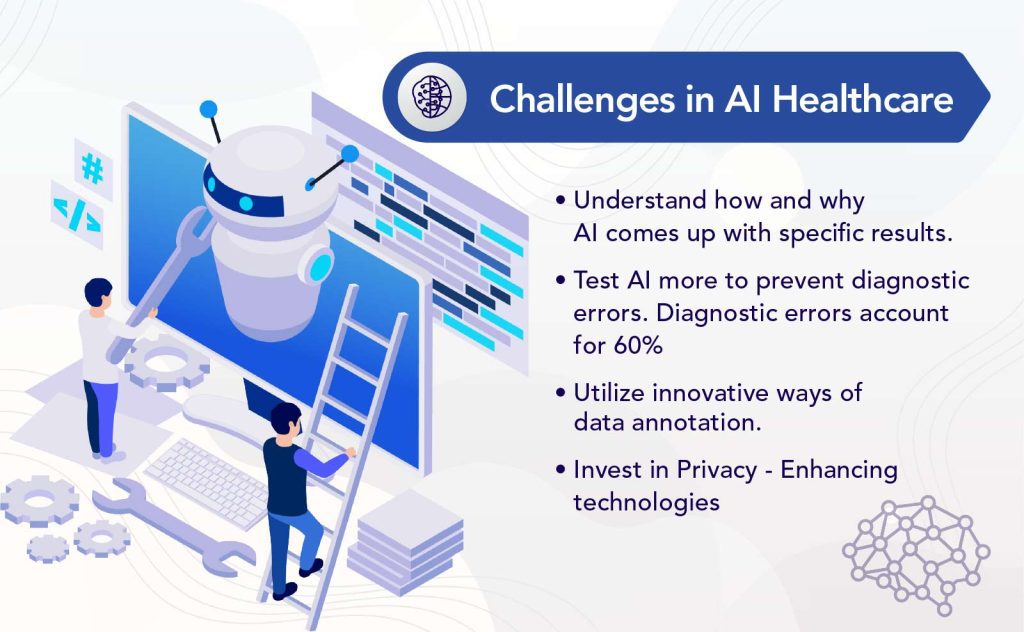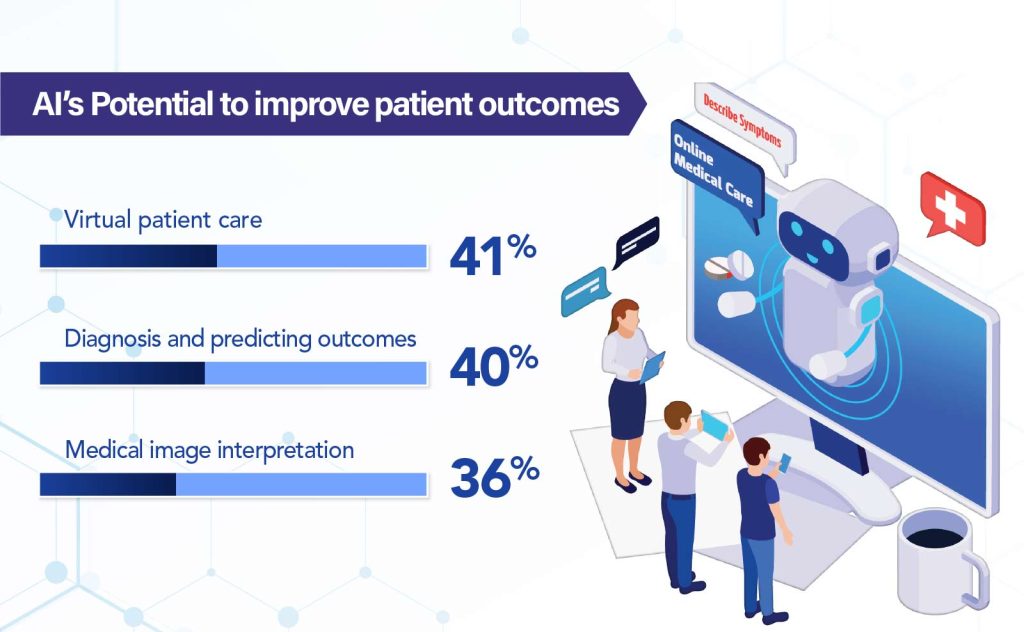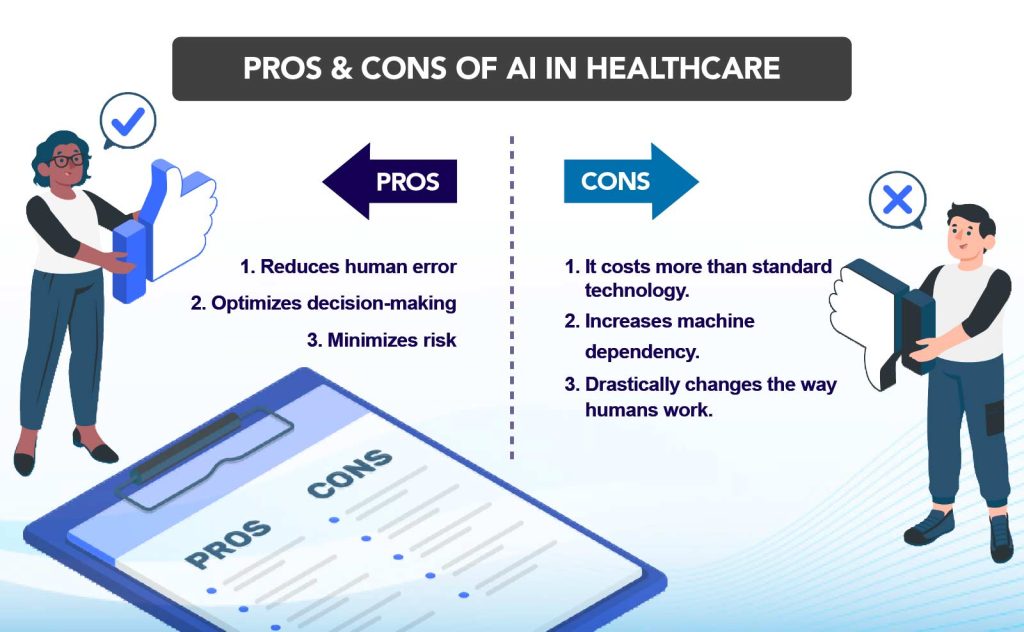
- Home
- Solutions
Engineering
Manufacturing
Intelligent Automation
Staff Augmentation
Engineering
Manufacturing
Intelligent Automation
Staff Augmentation
- Industries Covered
- Resources
- About Us
- Get in Touch


How often have you questioned if your doctor’s prescription was the best choice? Now you don’t have to worry about misinformation about your healthcare needs.
Prescriptive analytics in healthcare uses artificial intelligence and machine learning algorithms to help match patients with appropriate treatment options. Doctors can prescribe medications more efficiently and make more effective treatment decisions.

Prescriptive analytics in healthcare uses AI to predict outcomes and make medical recommendations, whether treatment or lifestyle changes.
As a result, healthcare providers can assess patients without needing face-to-face consultations while gaining insight into health risks to make more informed decisions on diagnosis and treatment plans.
Plus, this form of data analysis gives clinicians access to historical data they might not have previously considered.
As clinicians deal with mounting data volumes and growing responsibilities, they find it challenging to stay up with the latest scientific evidence while providing patient-centered care.
Health professionals can use machine learning techniques to extract accurate, relevant, evidence-based data from biomedical and electronic health records.
With AI-powered clinical decision support tools, users can ask questions in natural language as if speaking with a medical colleague to receive accurate feedback.
This article, prescriptive analytics in healthcare, examines how healthcare can leverage artificial intelligence to promote health equity. It is essential for health IT professionals to ensure fairness and equality in clinical studies and data science by producing AI and ML systems that train to prevent bias in health data.
As a result, research bias minimizes to reduce healthcare outcomes disparities for women, people of color, and people with lower incomes.
Despite these challenges, AI and machine learning have benefited healthcare organizations and patients. In addition to streamlining workflows and automating mundane tasks, AI can help users find answers to pressing questions.
As a result, AI in healthcare solutions has become more than just a buzzword. They are saving lives and transforming how we receive quality care.

Doctors often feel the pressure to make fast and accurate diagnoses. Unfortunately, this can lead to overdiagnosis and the prescription of unnecessary treatments, ultimately contributing to increased healthcare costs.
Prescriptive analytics in healthcare is a machine learning technique that takes data, such as patients’ symptoms, genomic sequences, gene expression values, and epidemiological data, and predicts the course of treatment.
Artificial intelligence’s benefits in healthcare solutions are that it allows for more personalized medicine with fewer medical errors.

In healthcare, artificial intelligence software can replace administrative positions with the most significant benefit.
For example, your doctor’s or physician’s time can be spent on patients with complex needs rather than day-to-day tasks if you have an AI collecting medical records, monitoring vital signs, and analyzing lab results.
A common way to introduce AI into healthcare is to use algorithms that analyze patients’ symptoms to help determine potential diagnoses. Then, these algorithms can automatically suggest treatments based on their diagnoses.
Moreover, it allows doctors to diagnose rare diseases more accurately since it does not require hours of research.
Healthcare professionals and their patients are beginning to see the benefits of artificial intelligence. However, further research is needed before we know the full extent of AI’s benefits.
Artificial intelligence is a term that applies to computers or machines performing tasks that usually require human intelligence. Artificial intelligence in healthcare has much to offer in the healthcare industry by increasing accuracy and providing more significant insights into patient data. It can be used for diagnosis, treatment, and predictive analytics.
Artificial intelligence also improves efficiency and reduces costs for providers.
These are just some of the benefits of artificial intelligence in healthcare solutions.
AI has many benefits but is not the answer to all problems. Therefore, one should consider the advantages and disadvantages before using AI. One of the first significant benefits of using AI for healthcare analysis is that it can help with long-term planning by providing predictive analytics in healthcare, which can help find disease treatments and preventative solutions before the development stages.

The use of artificial intelligence in healthcare solutions is a fast-growing field. However, with the help of AI, various privacy, security, and ethical considerations address to ensure the well-being and safety of all parties involved.
In this day and age of increased transparency and technology, it can be hard to maintain privacy for any individual or company. With the rise in hacking incidents and significant data leaks over the past couple of years, there are plenty of examples of how personal information leaks without a trace—and how long it takes for those instances to come to light. Artificial intelligence can help alleviate some of these concerns by guarding against potential breaches through various mechanisms.
Artificial intelligence is starting to play a more prominent and significant role in our society. AI is helping with all aspects of life, from driving cars to predicting the weather to even assisting doctors in diagnosing patients more accurately. The healthcare industry has embraced AI as well, and in some ways, it has been the most successful so far. Artificial intelligence can help improve the efficiency of hospital procedures by reducing the time doctors spend on paperwork, reviewing medical records, and identifying patients who may need special attention in an emergency room setting. AI can even remember when a patient may have a rare disease without them ever telling their doctor by cross-referencing their genome against other patients with that disease.
Healthcare is one of the next frontiers in the Big Data universe, so one must master it like finding a needle in a haystack. It prevents the healthcare industry from losing billions of dollars annually; moreover, the development of efficient diagnoses, new medicine, and treatments increases with the capability to connect meaningful data points.
Due to the chronic data leakages in the health industry, more organizations are turning to artificial intelligence. In addition, artificial intelligence in healthcare lets them make sense of disparate data sets much faster than was once possible.
The detection of fraud: There has been an exponential increase in the number of fraud cases, which has made most medical organizations and patients suffer a great deal. However, as prescriptive analytics in healthcare will allow elaborate navigation through processes and detect fraud, fraud attempts have significantly decreased.
Prescriptive analytics has seen a rise due to advancements in technology.
Although Prescriptive analysis in Healthcare will provide a guide and recommendations for treatments, it can enhance existing processes, saving time and streamlining decision-making while considering past behavior patterns, known allergies, current medication regimens, lab tests, etc.
As a result, doctors can free up their time by applying data-driven insights.
Your email address will not be published. Required fields are marked *
© Copyright 2023 - All Rights Reserved By Stamod